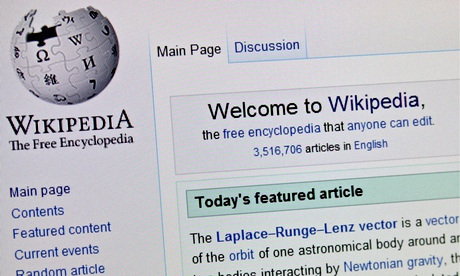
It's not uncommon for doctors to type unusual symptoms into Google and see what comes up – studies show between 47% and 70% of doctors and medical students use Wikipedia – and so far standards of medical care don't seem to have plummeted. The public, of course, use it even more. Wikipedia's medical content is guarded by the Wikiproject Medicine team, who take accuracy pretty seriously. So they were not pleased to see a study in the Journal of the American Osteopathic Association (a peer-reviewed publication) saying that nine out of 10 Wikipedia articles on common conditions have inaccuracies. These inaccuracies were identified by middle-grade doctors who reviewed statements of fact in each article against peer-reviewed medical publications. The paper does not give examples of what exactly these inaccuracies are. One media report quoted an inaccuracy in the number of times that blood pressure should be tested before starting treatment. Wikipedia seems, however, to be right (except when the blood pressure reading is very high), as it quotes National Institute for Health and Care Excellence (Nice) guidelines. So, should you stop using Wikipedia as your second opinion (or first if your GP is booked up), or is it good enough?
The solution
Lots of studies have looked at Wikipedia's accuracy. It seems more reliable for kidney disease and mental health problems, less so for drug information (especially on how medicines interact with each other), digestive and liver diseases, and gastroenterology. One study found information on children's ear, nose and throat problems had twice as many errors on Wikipedia as on eMedicine, a free online resource for medical professionals. This latest study found that, for each Wikipedia article, between 55% and 100% of the factual statements found were substantiated by the peer-reviewed literature. There is, however, often disagreement on what is "medical fact" within that literature and the study didn't take this into account.
When searching online for medical advice, always look at a few sources (preferably ones with web addresses ending in .edu, .gov, or .org). Look at the date, who is providing it (an independent rather than commercial source is likely to be less biased) and whether evidence (such as references from journals) is given. NICE guidelines are a good source and they have patient versions of content, as does the Cochrane library. eMedicine is free but you may need a medical dictionary. Research in the BMJ and Plos Medicine is also freely available. Before acting on internet advice, it is advisable to talk to your doctor, bearing in mind that doctors, too, don't always give the same medical advice as each other.

